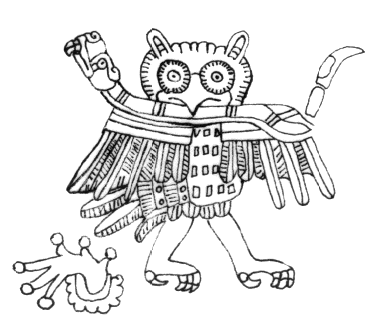歴史を感じる瞬間について
The moment when we just feel that "we are
being-in-history"

解説:池田光穂
歴史を感じる瞬間について
The moment when we just feel that "we are
being-in-history"

解説:池田光穂
以下の記述は、ジェームズ・クリフォードが、レイモンド・ファース(1901-2002)とお喋りしていて、彼が、ティ コピアをはじめ太平洋の先住民の人たちの西洋世界に対するリベラルな代弁者であることが、1960年代末の「異議申し立て」の歴史状況のもとで現地の人た ちから「裏切られた」とファースが感じた瞬間を活写したものである。そして、クリフォードは、これこそが、彼が『文化人類学』誌の論文のタイトルになって いる「歴史を感じること」であると示唆している。
文章は2つのパラグラフからなっている。
| "A conversation from the early 1970s comes to mind. I was a doctoral student doing research work at the London School of Economics in the Malinowski papers, and one day outside the library I found myself chatting about the history of his discipline with Raymond Firth, the great anthropologist of Tikopia. Firth had been a student and colleague of Malinowski. He shook his head over attempts to connect anthropological research with colonial power, in particular the important book edited by Talal Asad, Anthropology and the Colonial Encounter (1973).Without minimizing the issue, Firth thought the relations between anthropology and empire were more complex than some of the critics were suggesting. He shook his head in a mixture of pretended and real confusion. What happened? “Not so long ago we were radicals.We thought of ourselves as gadflies and reformers, advocates for the value of indigenous cultures, defenders of our people. Now, all of a sudden, we’re handmaidens of empire!" (Clifford 2012:419)/(Clifford 2015:27) | 1970年代初頭のある会話が思い出される。私はロンドン・スクール・
オブ・エコノミクスでマリノフスキーの論文を研究していた博士課程の学生だったが、ある日図書館の外で、ティコピアの偉大な人類学者レイモンド・ファース
と彼の学問の歴史について話していた。ファースはマリノフスキーの学生であり同僚だった。彼は人類学研究を植民地権力と結びつけようとする試み、特にタラ
ル・アサド編『人類学と植民地的遭遇』(1973年)という重要な本に首をかしげた。彼は、見せかけの困惑と本当の困惑が入り混じった表情で首を振った。
何が起こったのですか?「少し前まで、私たちは急進派でした。私たちは自分たちのことを、ブンブン飛び回るアブであり、改革者であり、先住民の文化の価値
を擁護し、民族の擁護者であると考えていました。それが突然、帝国の手先になってしまったのだ! |
| "This is what it’s like to feel historical. The marking of colonialism as a “period” (a span of time with a possible ending) came suddenly to Euro-American liberal scholars, at least those who noticed the changes.Who would have predicted in the early 1950s that within a decade most of the colonies ruled by France and Britain would be formally independent? Feeling historical can be like a rug pulled out: a gestalt change perhaps, or a sense of sudden relocation, of being seen from some previously hidden perspective. For Euro-American anthropology, the experience of a hostile identification as a Western science, a purveyor of partial truths, has been a troubling, alienating, but ultimately enriching process. The same learning opportunity challenged many scholars of my generation with respect to gender and race."(Clifford 2012:419-420)/(Clifford 2015:27-28) | 歴史を感じるとはこういうことだ。植民地主義を「ピリオド」(終わりを
迎える可能性のある期間)と呼ぶようになったのは、少なくともその変化に気づいていたヨーロッパ系アメリカ人のリベラルな学者たちにとって突然のことで
あった。歴史を感じるということは、敷物が引き抜かれるようなものである。ゲシュタルトの変化、あるいは突然の移転、以前は隠されていた視点から見られる
という感覚かもしれない。ヨーロッパ系アメリカ人の人類学にとって、西洋の科学であり、部分的な真実を提供するものであるという敵対的な認識は、厄介であ
り、疎外的なものであったが、最終的には豊かなものであった。ジェンダーや人種に関しても、同じような学びの機会が私の世代の多くの学者たちに与えられ
た。 |
☆自分たちを歴史的存在だと認識できない人は、ここで、「グローバリゼーション」「インターネット」「ポストコロニアル」という3つの用語がなりたたない世界を想像されることをおすすめしたい(ジェームズ・クリフォード『文化の苦境/文化の窮状』が書かれた1988年当時はそんな時代だった)。
本文
リンク
文献
その他の情報:【出典】インディオ・メスティソ・ラサ:ラテンアメリカにおける人種的
カテゴリー再考(研究ノート)
Copyleft, CC, Mitzub'ixi Quq Chi'j, 1996-2099